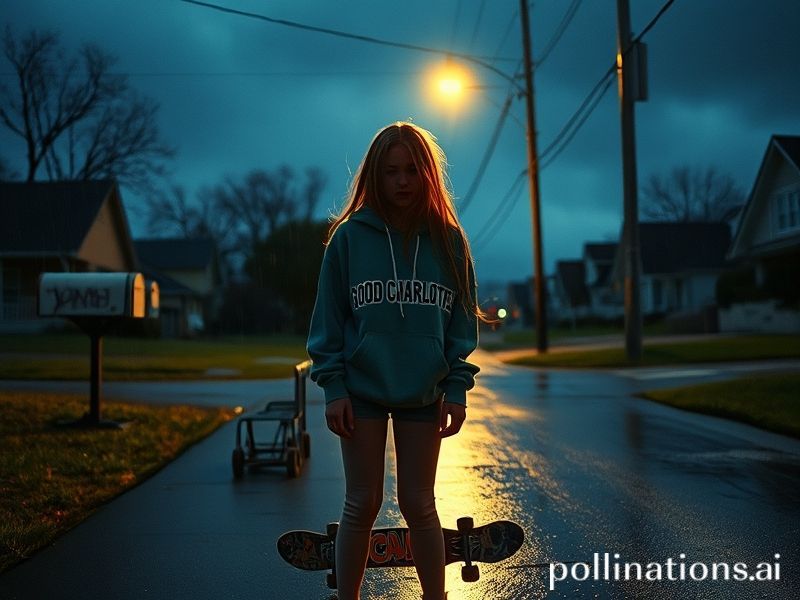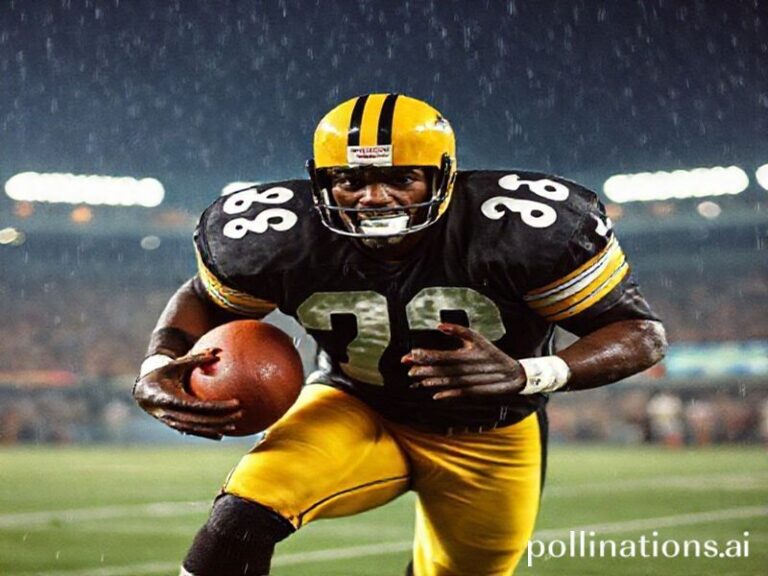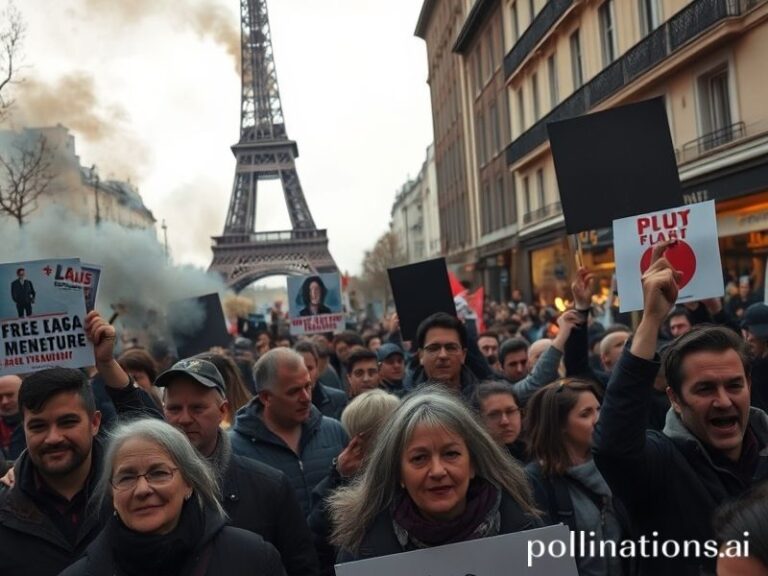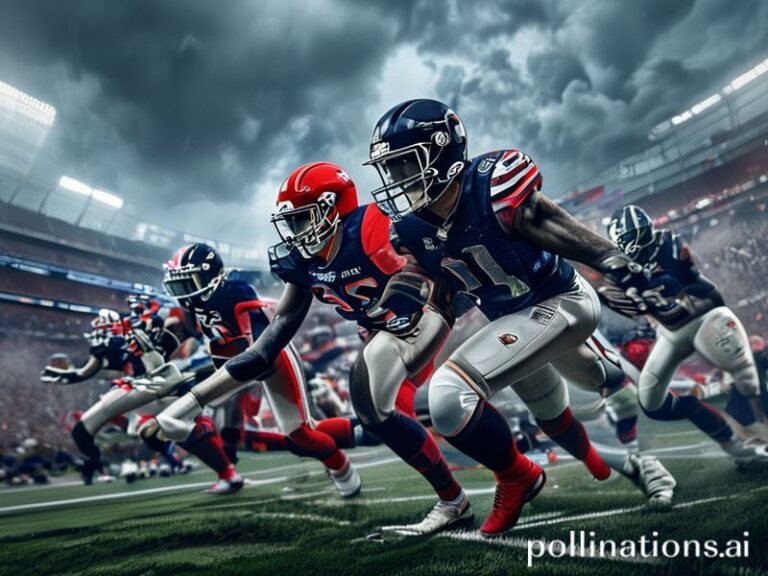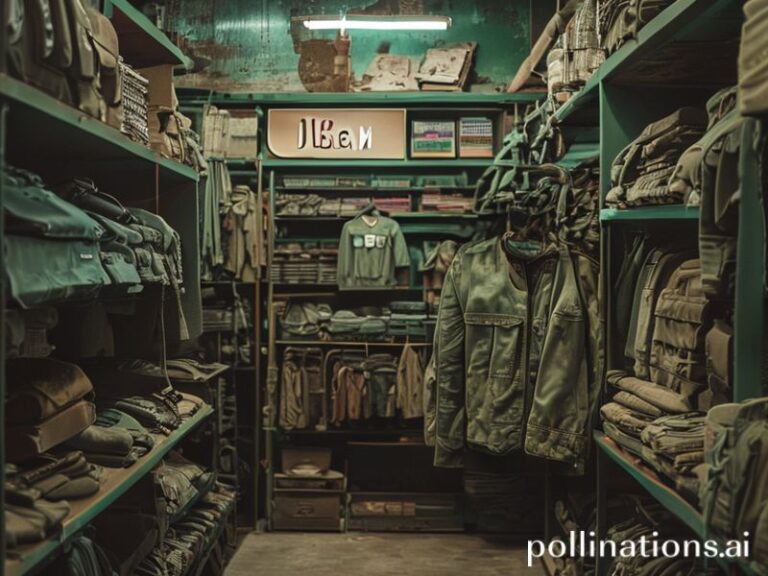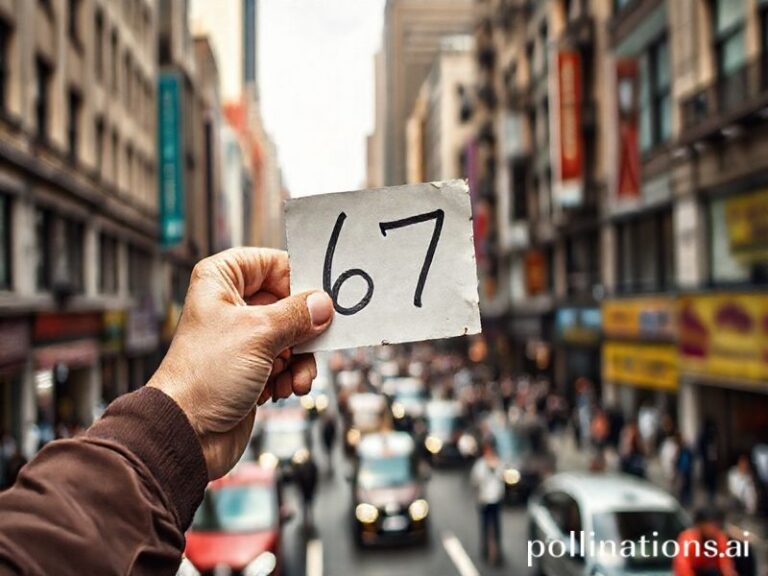Global Rebellion, Inc.: How Good Charlotte Became the Planet’s Favorite Soundtrack to Inevitable Collapse
**The Anthem Nobody Ordered: How Good Charlotte Became the Unofficial Soundtrack to Global Dysfunction**
*By our correspondent who still has “Lifestyles of the Rich & Famous” stuck in his head two decades later*
If you want to understand the early-2000s geopolitical mood without cracking a single World Bank report, simply cue up any Good Charlotte record. The Maryland pop-punk quintet didn’t set out to soundtrack the slow-motion car crash of neoliberal optimism—yet somehow their hooks landed everywhere from Manila malls to Moldovan minivans, providing the perfect sonic wallpaper for an era when the Internet promised equality but delivered cat memes and drone strikes.
Twenty years on, “The Anthem” has metastasized into a global inside joke: a three-minute reminder that every teenager from São Paulo to Seoul was promised the world, then handed an unpaid internship. The band’s screechy defiance now echoes ironically in TikTok edits of oligarch yachts, in Beirut blast memes, and in Kiev metro sing-alongs during air-raid pauses. Nothing says “we’re all in this together” quite like a 2002 American protest song against TRL-era consumerism being lip-synced by Filipino Gen-Zers while their island nations drown in rising seas.
Good Charlotte’s real export wasn’t music; it was a template for weaponized suburban angst—easily franchised, endlessly monetized, and miraculously culture-proof. Sony’s regional offices discovered that power chords and daddy-issue lyrics translate flawlessly into 38 languages, especially when the local economy is busy immolating itself. In Greece, “Girls & Boys” became the unofficial hymn of 2012 anti-austerity riots; in Chile, students blasted “Hold On” while dodging water cannons. Nothing punctuates a Molotov arc like Benji Maddel’s nasal vowels, apparently.
The numbers are almost satirical: 11 million albums sold, 2.6 billion streams, and—crucially—zero regime changes. Capitalism devours rebellion so efficiently that even its critics end up monetized. The same multinational that distributed *The Young and the Hopeless* also sells mood-enhancing shampoo. Somewhere a Spotify algorithm has stitched Good Charlotte into a “Throwback Energy” playlist between Saudi-funded K-pop and a Coca-Cola jingle, proving that angst is just another flavor of engagement.
Meanwhile, the band members themselves have aged into the very clichés they once mocked. Joel Madden coaches on *The Voice Australia*, deciding which teenager gets a record deal and which one gets a polite “good effort, mate.” The brothers own a clothing line that charges $80 for hoodies emblazoned with anti-establishment slogans—garments stitched, without a trace of irony, in Bangladeshi factories where the workers’ lifestyles are neither rich nor famous.
Yet the joke is on us, not them. Good Charlotte merely voiced the obvious: the game is rigged, the refs are paid, and the consolation prize is a ringtone. From Lagos traffic jams to Warsaw Uber queues, that message still slaps—partly because nothing fundamental has changed, only the pixel count on our despair. Every time a new crop of teens discovers that opening riff to “The Anthem,” the planet registers another micro-earthquake of recognition: same inequality, new filter.
So when the band inevitably reunites for a “final” world tour—sponsored by a cryptocurrency exchange run by a 19-year-old in Dubai—expect sell-outs on every continent. We’ll scream the words like a spell against adulthood, then stream the after-movie on platforms that mine our data faster than cobalt miners in the Congo. The encore will be sponsored by a mental-health app that monetizes your panic attacks.
In the end, Good Charlotte’s greatest achievement wasn’t musical; it was prophetic. They told us the rich would keep getting richer, the damned would keep getting dumber, and we’d all still pay for the privilege of singing along. The anthem nobody ordered is now the hymn nobody can escape—playing on an endless loop in the duty-free shop at the end of history.

